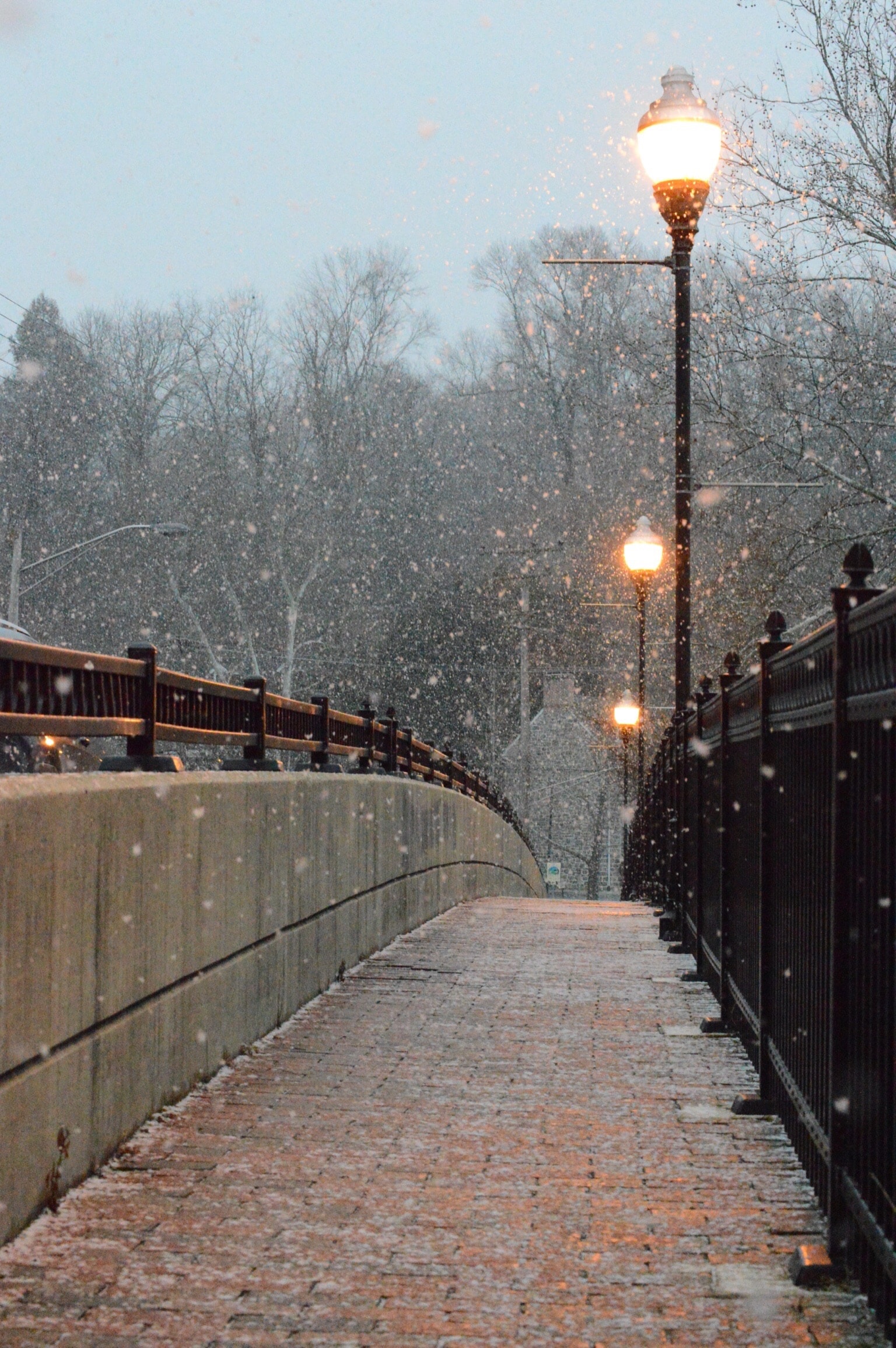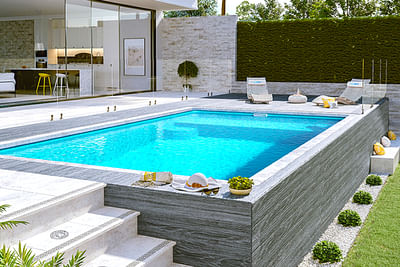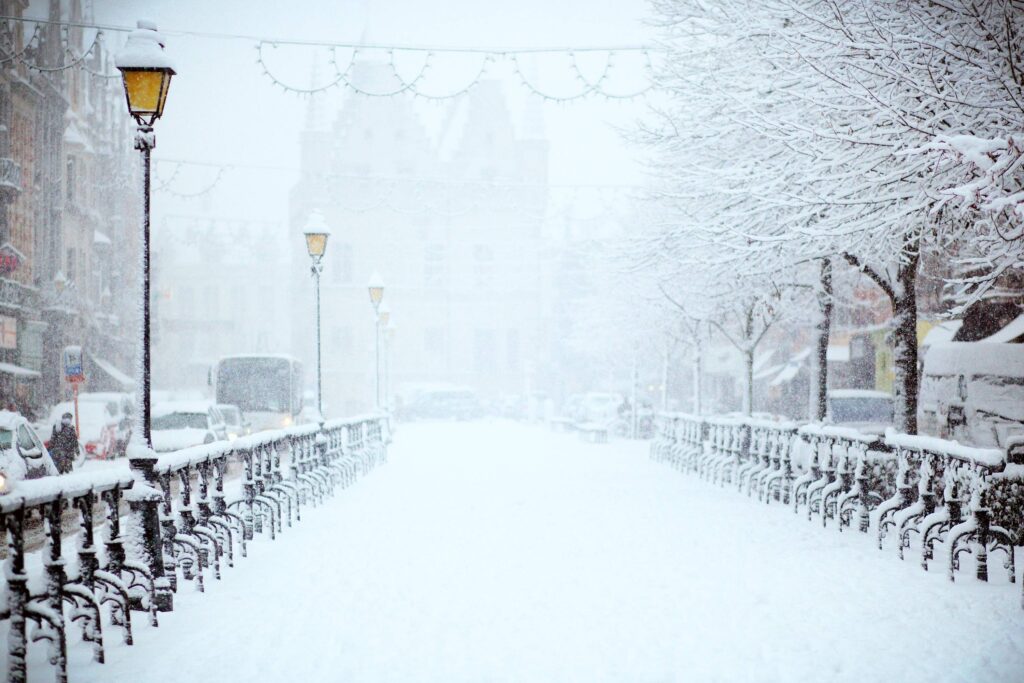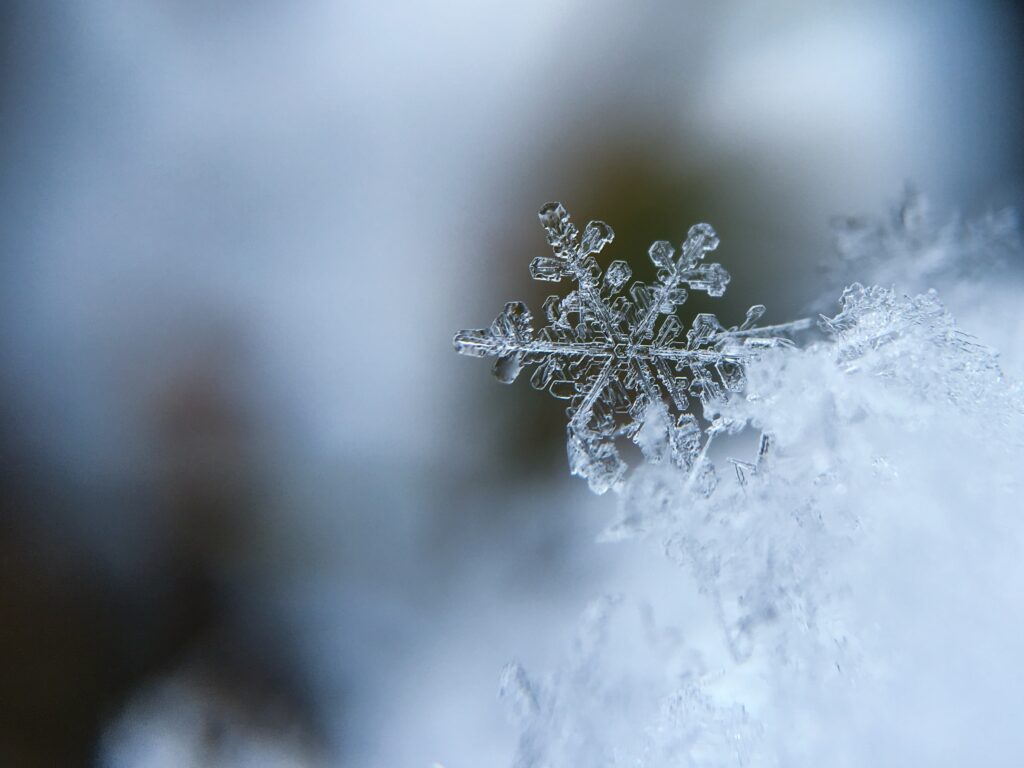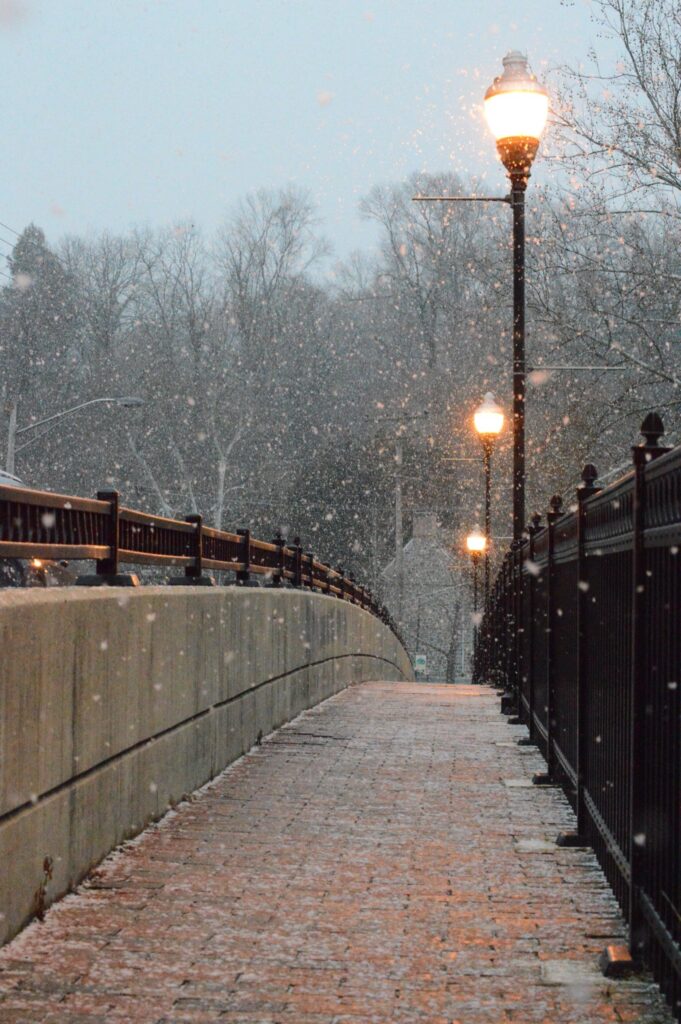If you’re wondering whether it’s safe to leave your above-ground pool running throughout the winter months, you’re not alone. Many pool owners ponder this question, unsure of what’s best for their pool’s longevity and efficiency. In this article, we will explore the various factors to consider when deciding whether or not to leave your above-ground pool operational during the winter season. From energy consumption to potential damage, we’ll provide you with the essential information to make an informed decision about your pool’s winter maintenance.
Benefits of Leaving Above-Ground Pool Running
Prevents freezing and ice damage
Leaving your above-ground pool running throughout the winter can help prevent freezing and ice damage. By circulating the water and keeping it moving, you reduce the risk of ice formation, which can lead to cracking or damaging the pool walls and equipment.
Maintains water circulation and filtration
Continuous operation of your above-ground pool during winter ensures proper water circulation and filtration. This helps in preventing the buildup of dirt, debris, and contaminants in the water, contributing to cleaner and healthier pool conditions.
Reduces the risk of algae growth
Algae thrive in stagnant water, and leaving your above-ground pool running during winter helps reduce the risk of algae growth. With regular circulation, the chlorine and other pool chemicals can effectively ward off algae and keep your pool water clear and algae-free.
Keeps the pool water clean and clear
Running your above-ground pool during winter not only helps prevent algae growth but also keeps the water clean and clear. By continuously circulating the water, it minimizes the chances of dirt and debris settling at the bottom of the pool, ensuring a cleaner and more enjoyable swimming experience when you reopen your pool in the spring.
Allows for occasional winter use
Leaving your above-ground pool running all winter also provides the opportunity for occasional use during the colder months. You can enjoy a relaxing soak or host small winter gatherings in a pool with properly regulated water temperature and cleanliness. It can add a unique and fun element to your winter activities.
Factors to Consider
Climate and average winter temperature
When deciding whether to leave your above-ground pool running during winter, consider the climate and average winter temperature in your area. If you live in a region with extremely cold temperatures and prolonged freezing periods, it may be more challenging to keep the pool running without incurring excessive energy costs or potential equipment damage.
Energy consumption and cost
Keeping your above-ground pool running all winter will inevitably increase your energy consumption. Consider the potential impact on your electricity bills and weigh it against the benefits of maintaining a running pool. Energy-efficient equipment and automation systems can help reduce energy consumption and mitigate costs.
Equipment durability and lifespan
Prolonged operation during winter may put additional strain on your pool’s equipment, including the pump, filter, and heater. Take into account the durability and lifespan of your equipment and ensure that it is designed to withstand continuous operation in low temperatures. Regular maintenance and inspections are crucial to safeguarding the longevity of the equipment.
Potential maintenance and repair issues
Running your above-ground pool all winter may result in increased maintenance and repair requirements. Cold weather can cause wear and tear on pool components and lead to potential issues such as frozen pipes, leaks, or pump malfunctions. Be prepared for any necessary repairs and have a maintenance plan in place to address these issues promptly.
Safety concerns
Consider the safety implications of leaving your above-ground pool running during winter. Ensure that the pool area is secured to prevent unauthorized access, especially if you have children or pets. Implement safety measures such as pool alarms or safety covers to minimize the risk of accidents. Regularly inspect and secure equipment to maintain a safe environment.
This image is property of images.unsplash.com.
Preparation Before Winter
Clean and balance the pool water
Before winter arrives, it is essential to clean and balance the pool water. Remove any debris, such as leaves or dirt, from the surface and bottom of the pool. Test and adjust the water chemistry to ensure it is balanced and in an optimal condition for winterization.
Remove debris and vacuum the pool
Thoroughly vacuum the pool to remove any debris that may have settled at the bottom. Use a pool vacuum or a suitable cleaning apparatus to effectively remove dirt, leaves, and other particles. This step is crucial to avoid clogging the filtration system during winter operation.
Backwash and clean the filter
Backwash and clean the pool filter to remove any accumulated debris or contaminants. A clean filter ensures efficient water flow and filtration during winter operation. Follow the manufacturer’s guidelines for proper backwashing and maintenance.
Lower the water level
Lower the water level in your above-ground pool to prevent damage caused by freezing and expanding water. Reduce the water level below the skimmer and return jets while still ensuring the water covers the pool’s bottom. This step is essential in cold climates to minimize the risk of ice damage to pool walls and equipment.
Winterize the plumbing and equipment
In preparation for winter, winterize the plumbing and equipment of your above-ground pool. Drain water from the pipes, pumps, and filters, and use specialized winterizing products to protect them from freezing temperatures. Follow manufacturer recommendations or consult a professional to ensure proper winterization techniques.
Continuous Running vs. Intermittent Running
Continuous running
Continuous running implies keeping your above-ground pool equipment operating non-stop throughout the winter season. This ensures continuous water circulation, filtration, and pool maintenance. Continuous running is suitable for areas with milder winters or for pool owners who value convenience and a consistently clean pool.
Intermittent running
Intermittent running involves operating your above-ground pool equipment for shorter periods during the winter season. This method helps conserve energy while still maintaining water circulation and filtration. It is advantageous in regions with more prolonged freezing periods, where continuous running may be impractical or too costly.
Use of timers or automation systems
To regulate the running schedule of your above-ground pool, consider using timers or automation systems. These devices allow you to control and customize the operating hours of your pool equipment, ensuring optimal energy efficiency and conveniently timed maintenance routines.
This image is property of images.unsplash.com.
Monitoring and Maintenance
Regularly check water chemistry
During winter operation, it is crucial to regularly check and maintain proper water chemistry. Test the pool water at regular intervals and adjust chlorine levels and pH accordingly. Keeping the water chemistry balanced ensures optimal sanitization and prevents the growth of algae or other harmful microorganisms.
Inspect and clean the pump and filter
Regularly inspect and clean the pump and filter of your above-ground pool. Remove any debris or buildup that may impede water flow and filtration. Check for any signs of leaks or mechanical issues and address them promptly to avoid further damage or inefficiencies.
Remove any debris from the pool
Even during winter, debris such as leaves or branches may accumulate in the pool. Remove any visible debris to maintain a clean and aesthetically pleasing pool environment. This practice not only ensures better water circulation but also minimizes the risk of clogging the equipment.
Monitor electricity consumption
Consistently monitor your electricity consumption to assess the impact of leaving your above-ground pool running throughout the winter. Keep track of monthly energy bills and compare them to previous seasons or alternative winterization methods. This analysis will help you make informed decisions regarding the cost-effectiveness of winter operation.
Address any issues promptly
Promptly address any issues or malfunctions that arise during winter operation. The longer problems are left unattended, the more damage they can cause to your above-ground pool and associated equipment. Regular inspections and quick problem-solving ensure the longevity and efficient functioning of your pool.
Additional Considerations for Cold Climates
Use of pool covers or enclosures
In regions with exceptionally cold climates, consider using pool covers or enclosures to provide an additional layer of protection. These help retain heat and prevent the accumulation of snow, ice, or debris in the pool. Pool covers also minimize evaporation, thus conserving water during winter.
Winterizing chemical treatments
In colder climates, specific winterizing chemical treatments can be beneficial to maintain water quality and prevent damage. These treatments address the unique challenges of extreme winter conditions and help protect the pool from freezing, algae growth, and other issues associated with cold weather.
Insulating the pool or equipment
Insulating your above-ground pool or equipment can be advantageous in cold climates. It helps retain heat and conserves energy, reducing the strain on the heating system. Insulation materials, such as insulating covers or blankets, can be utilized to minimize heat loss in areas prone to freezing temperatures.
Snow and ice removal
Regularly remove snow and ice from the pool and surrounding area to prevent damage and ensure safe access. Use suitable tools and techniques to avoid scratching or damaging the pool surface. Clearing snow and ice also helps maintain proper water circulation and prevent the formation of ice dams.
Antifreeze precautions
Take antifreeze precautions when necessary to protect your pool’s plumbing and equipment. Use antifreeze products specifically formulated for pool use and carefully follow the manufacturer’s instructions. These precautions help prevent freezing and damage to the pool’s plumbing system.
This image is property of images.unsplash.com.
Cost Analysis and Energy Efficiency
Estimated energy consumption
Estimating the energy consumption of your above-ground pool during winter operation is essential in evaluating the associated costs. Consult the pool equipment specifications and calculate the energy usage based on the running time and power requirements. This estimation will provide insights into the pool’s energy consumption and potential savings.
Impact on electricity bills
Leaving an above-ground pool running throughout winter will inevitably impact your electricity bills. Compare your current energy bills with previous seasons or alternative winterization methods to gauge the cost-effectiveness of continuous operation. Consider the potential long-term savings and convenience when assessing the impact on your expenses.
Comparison with alternative winterization methods
Compare the benefits and costs of leaving your above-ground pool running during winter with alternative winterization methods. Analyze the advantages and disadvantages of each approach, taking into account factors such as maintenance requirements, equipment longevity, water quality, and convenience. This analysis will help you make an informed decision based on your specific circumstances.
Investing in energy-efficient equipment
Consider investing in energy-efficient equipment for your above-ground pool. Energy-efficient pumps, filters, and heaters can significantly reduce energy consumption and costs during winter operation. Look for products that carry the ENERGY STAR® certification or consult with pool professionals to identify energy-efficient options suitable for your pool.
Manufacturer Recommendations
Consulting the pool’s user manual
To ensure proper operation and maintenance, consult the user manual provided by the manufacturer of your above-ground pool. The manual will provide comprehensive information regarding winterizing procedures, recommended running times, maintenance routines, and safety guidelines specific to your pool model.
Following manufacturer guidelines
Follow the manufacturer’s guidelines when it comes to operating, maintaining, and winterizing your above-ground pool. Manufacturers have developed these guidelines based on their extensive knowledge and expertise to ensure the longevity and optimal performance of their products. Deviating from these guidelines may void warranties or compromise pool safety.
Specific considerations for different pool types
Different types of above-ground pools may have specific considerations regarding winter operation. Vinyl, fiberglass, and steel-walled pools may require different maintenance routines and winterization techniques. Consult the manufacturer’s instructions or seek professional advice to tailor your winterization efforts based on your specific pool type.
Warranty and coverage implications
Leaving your above-ground pool running during winter may have warranty and coverage implications. Check the terms and conditions of your pool and equipment warranties to ensure that continuous operation throughout winter does not void them. Complying with the manufacturer’s recommendations and guidelines will help maintain warranty coverage.
Personal Preference and Usage Patterns
Assessing personal needs and preferences
Assess your personal needs and pool usage patterns when deciding whether to leave your above-ground pool running throughout winter. Consider factors such as the desire for occasional winter use, the convenience of a consistently clean pool, and the willingness to incur additional energy costs. Tailor your decision based on what suits you and your family’s preferences.
Considering potential advantages and disadvantages
Consider the potential advantages and disadvantages of leaving your above-ground pool running during winter. Assess the benefits of maintaining water circulation, preventing freeze damage, and enjoying occasional winter use against the costs of increased energy consumption and potential maintenance requirements. Carefully weigh these factors to determine the best course of action.
Balancing convenience and cost
Balance convenience and cost when making a decision regarding winter operation of your above-ground pool. Continuous running offers the convenience of a consistently clean pool and occasional winter use, but it may come with higher energy costs. Intermittent running balances energy efficiency with pool maintenance, catering to both convenience and cost considerations.
Determining desired pool availability
Consider how important pool availability during the winter months is to you. Leaving your above-ground pool running allows for occasional winter use and provides an additional source of leisure and relaxation. If you value having a ready-to-use pool year-round, the benefits of continuous operation may outweigh the associated costs.
Safety Precautions
Ensuring proper installation and maintenance
Proper installation and maintenance of your above-ground pool are crucial for ensuring safety. Follow manufacturer guidelines and consult professionals if needed to ensure all pool components, including the filtration system, the ladder, and the pool walls, are securely installed. Regularly inspect and maintain these elements to prevent accidents or hazards.
Implementing safety measures during winter use
If you plan on enjoying your above-ground pool during winter, implement safety measures to ensure a secure experience. Install safety covers or enclosures to prevent accidental falls or unauthorized access. Ensure proper lighting and clear pathways around the pool area to minimize the risk of slips or injuries.
Preventing unauthorized access
Taking measures to prevent unauthorized access is essential for pool safety. Erect a suitable fence or barrier around the pool area to restrict entry when not in use. Lock gates or install an access control system to prevent children, pets, or untrained swimmers from entering the pool area without supervision.
Using pool alarms or safety covers
Pool alarms and safety covers are additional safety measures to consider when leaving your above-ground pool running during winter. Install pool alarms that detect movement or water displacement to alert you of any unexpected entrances or accidental falls. Use safety covers that conform to safety standards and provide an additional barrier of protection.
Regularly inspecting and securing equipment
Regularly inspect the pool equipment and secure it properly throughout the winter season. Ensure that the pump, filter, and other components are securely in place and that all connections are intact. Loose or damaged equipment can pose safety risks and may lead to accidents or equipment failure.
In conclusion, leaving your above-ground pool running all winter offers numerous benefits, including prevention of freezing and ice damage, maintenance of water circulation and filtration, reduced risk of algae growth, clean and clear pool water, and occasional winter use. However, it is essential to consider factors such as climate, energy consumption, equipment durability, maintenance needs, safety concerns, and personal preferences before making a decision. Proper preparation, monitoring, and maintenance are crucial to ensure the safe and efficient operation of your above-ground pool during the winter months. Consider manufacturer recommendations, assess cost analysis and energy efficiency, and implement safety precautions to make an informed decision and enjoy the winter season with your pool.
